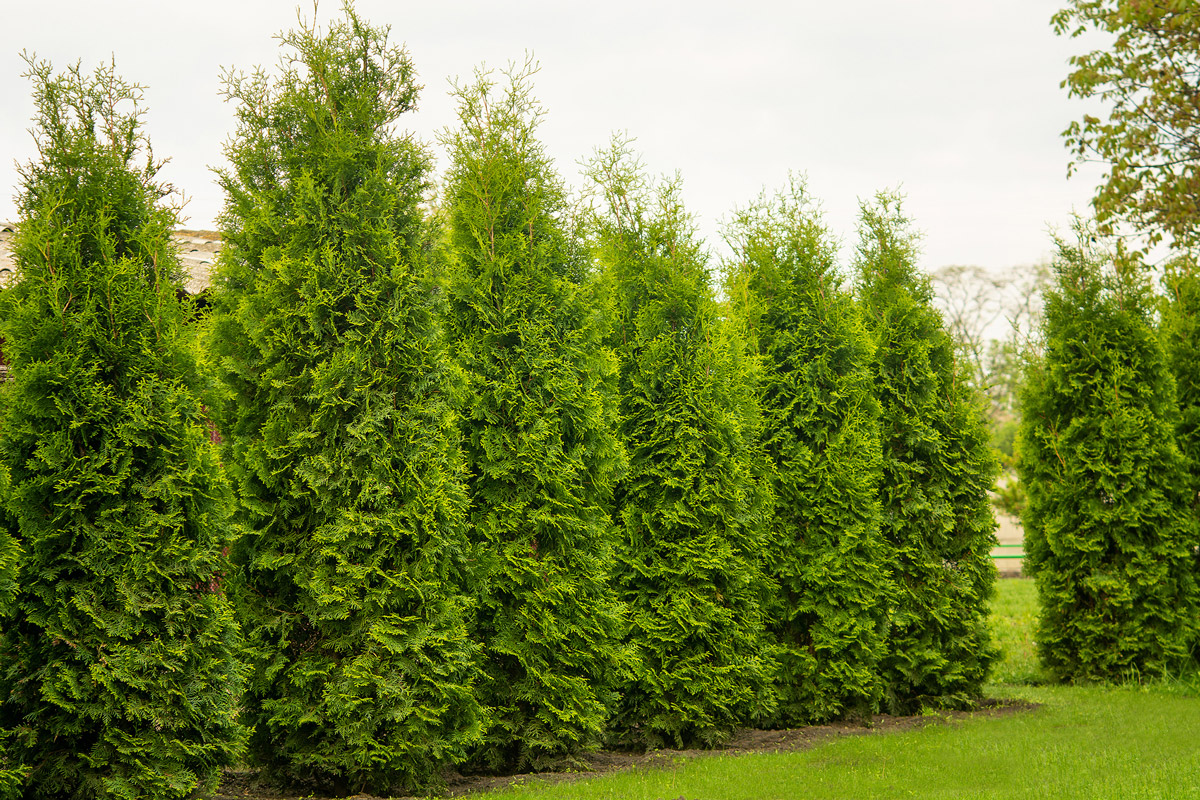2023
Advantages of Evergreen Hedges Instead of Fences

There is no doubt that people with children and/or dogs often want a fence, assuming a fence is allowed depending on jurisdiction, bylaws, and HOA rules. However, an evergreen hedge can act like a fence and has some advantages over a fence. In some cases, an evergreen hedge can replace a fence. In today’s blog article we will talk about why an evergreen hedge has some advantages over a fence.
Maintenance
A hedge needs water, especially right after planting, and regular pruning to make it the shape you want. Typically, hedges are topped when they reach a certain desired height. Trimming depends on your taste. Some people like a more natural looking and shaggy hedge, and others like a neater look.
Compare that to the maintenance needed for a fence. Fences have boards that rot and need replacing, posts that rot or loosen over time, and if you stain or paint a fence, that will have to be done on a regular basis. A hedge is just left to grow.
Integrity
Big storms can knock down fences or fence panels. This is much less likely to happen to a hedge. The roots of a hedge go deep into the ground and cling to the ground where the hedge is anchored.
Restrictions
There are usually many more local restrictions on fence type and height than there are for a hedge. You can typically allow a hedge to grow much higher than you can build a fence. This wider and taller hedge will provide more privacy and wind and sound protection than a fence will.
Since hedges of Western Red Cedar or Emerald Cedar are thick from the ground up, they can function exactly like a fence once they fill in and grow for a year or two. If you have an evergreen hedge, you may not need a fence at all.
For new cedar hedging, give us a call on the Lower Mainland at (778) 241-5664. This is our business and area of expertise.
Pacific West Cedars, based in Langley, British Columbia, farms, supplies, and installs cedar hedging on the Lower Mainland. They offer two kinds of cedars plus boxwoods: Western Red Cedar (Thuja plicata), and Emerald Cedars (Thuja occidentalis “Smaragd”). They work with landscapers, contractors, and also directly with the public.
If you have any questions about this article or would like to talk to us about cedars, we encourage you to call us at (778) 241-5664.


Post a Reply